The New Testament is not a whole "new" story; rather, it's a continuation of the biblical story introduced in the Old Testament. The Old Testament, also known as the Hebrew Bible, tells an incomplete story about God and Israel and their continual failings to be the people God calls them to be. But it also gives us hope of a coming Messiah, and the New Testament tells the story of that long awaited Messiah, Jesus.
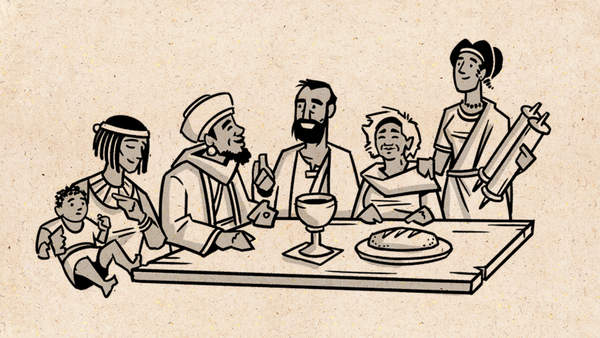
New Testament Overviews

New Testament Overview
The New Testament is not a separate story. It’s a continuation of the story introduced in the Old Testament and a fulfillment of God’s covenant promises introduced in the first part of the Bible. Explore the literary design of the entire New Testament, from the arrival of Jesus to the fulfillment of God’s restoration of his creation.
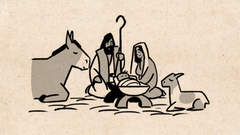
Matthew 1-13
Matthew begins with a genealogy that shows Jesus as a descendant from the line of David, a king and a fulfillment of God’s covenant promises to David and all of Israel. Matthew’s gospel account shows readers how the promises and prophecies God made to his people in the Old Testament came to pass through Jesus.
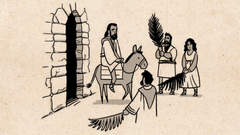
Matthew 14-28
Matthew’s gospel opens with Jesus’ genealogy, showing him as David’s descendant and fulfillment of God’s promises to Israel. Throughout the narrative, Matthew weaves together Jesus’ teachings, miracles, and ministry to show readers how the promises and prophecies God made to his people in the Old Testament came to pass through Jesus.
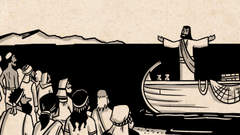
Mark
The Gospel of Mark gives a thorough account of Jesus’ life and ministry without making a clear statement about Jesus’ identity, and this is intentional. Mark shows how people, including Jesus’ disciples, questioned if he was who he said he was. The second half of the book then provides strong evidence that Jesus is indeed the Messiah.
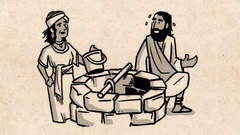
John 1-12
John's Gospel emphasizes Jesus' identity as the Messiah and Son of God. Because of this divine identity, Jesus is able to give eternal life to everyone who believes in him. We see this reality through the signs and miracles he performs. And seven times, he answers "I Am" when people question his identity, echoing God's personal name revealed in Exodus 3.
John's Gospel also shows Jesus using his time on earth to introduce people to the new birth. By believing that he is the Messiah and God's son, they have eternal life and freedom from sin and are empowered to perform radical acts of kindness, generosity, and selfless love as they live their lives in devotion to Jesus and his Kingdom.
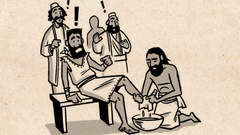
John 13-21
John's Gospel emphasizes Jesus' identity as the Messiah and Son of God. Because of this divine identity, Jesus is able to give eternal life to everyone who believes in him. We see this reality through the signs and miracles he performs. And seven times, he answers "I Am" when people question his identity, echoing God's personal name revealed in Exodus 3.
John's Gospel also shows Jesus using his time on earth to introduce people to the new birth. By believing that he is the Messiah and God's son, they have eternal life and freedom from sin and are empowered to perform radical acts of kindness, generosity, and selfless love as they live their lives in devotion to Jesus and his Kingdom.

Luke 1-9
Luke documents how Jesus expands God's Kingdom and covenant by creating a new Israel that includes the poor, outcasts, and others to whom Jesus brings restoration and reverses their life circumstances as he gives them freedom and release from the tyranny of evil and sin.
Throughout the book, we see that Jesus is indeed the messianic King, but he will reign over Israel by suffering. His actions usher in an upside-down Kingdom marked by self-giving love, and he challenges his disciples to follow his example and share in his ministry.
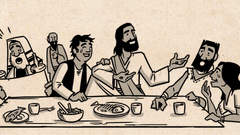
Luke 10-24
Luke documents how Jesus expands God’s Kingdom and covenant by creating a new Israel that includes the poor and outcasts. Throughout the book, we see that Jesus is indeed the messianic King, but he will reign over Israel by suffering. His actions usher in an upside-down Kingdom marked by self-giving love.
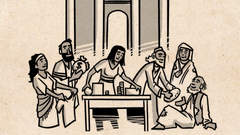
Acts 1-12
Jesus' followers received the Holy Spirit on Pentecost and became filled and equipped to spread the good news that would restore God's kingdom over the world. Through persecution, the believers were scattered. They continued to preach, and the church at Antioch was born.
It grew into the first multiethnic, international church from which missionaries were sent throughout the world to preach about Jesus, the messianic Messiah and risen king of all nations. Paul even continued to preach despite imprisonment and wrote important letters to the churches.
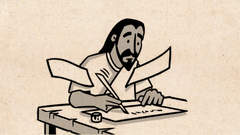
Acts 13-28
Jesus’ followers received the Holy Spirit at Pentecost and were equipped to spread the good news that would restore God’s Kingdom on Earth. Through persecution, followers of Jesus were scattered, so missionaries went out to preach about Jesus, the Messiah and risen King of all nations.
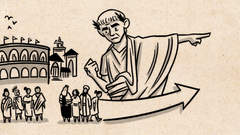
Romans 1-4
The people of Israel tried to obey God and follow the law, but they didn’t succeed. Only faith in Jesus’ death and resurrection can justify humanity and fulfill God’s promise to create a covenant relationship with his people, the descendants of Abraham.

Romans 5-16
Watch our Read Scripture video on the book of Romans, which breaks down the literary design of the book and its flow of thought. This is the second of two Read Scripture videos dedicated to the book of Romans, which aims to help you see its unique contribution to the story of Jesus, but also how it works within the Bible’s overall framework.
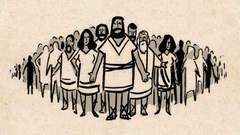
1 Corinthians
Paul’s first letter to the Corinthians is a wake-up call: the resurrection gives us a reason for unity, motivation to maintain sexual purity, ability to love other people more than ourselves, and ultimate hope for victory over death. Our belief that Jesus was raised from the dead opens a whole new reality for every area of our lives.

2 Corinthians
In 2 Corinthians, Paul challenges followers of Jesus to see life through the paradox of the cross. Because of the cross and God’s Spirit, Jesus’ followers receive power to live transformed lives. They become equipped to take up Jesus’ cruciform life and make it their own.

Galatians
In the book of Galatians, followers of Jesus learn that they are justified by the Gospel of Jesus, not the laws of Torah. They are a part of a multi-ethnic family of God and equipped by the Spirit to love God and others.
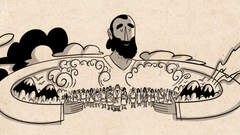
Ephesians
In the book of Ephesians, we learn how the Gospel creates a new multi-ethnic, covenant family of God and affects how we live every day as a new humanity unified in love. Energized by the Holy Spirit, believers can stand tall against the spiritual evil that threatens our unity as a Church family and maturity as followers of Jesus.
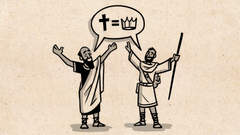
Philippians
The book of Philippians shows how living as a Christian means seeing your story as a living expression of Jesus’ story. While our true citizenship is in Heaven, we can enjoy a close connection to Jesus and an awareness of his love and presence on Earth that gives us hope in the darkest of circumstances.
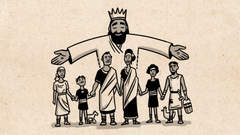
Colossians
The book of Colossians addresses problems the church at Colossae faced, challenging followers of Jesus to examine their lives and be transformed through the resurrection and love of Jesus. Because of Jesus’ resurrection, they are reconciled to God and free from the law. They are joined to Jesus as new creations and are part of his new multi-ethnic family.

Philemon
In this book, Paul asks Philemon to forgive his runaway slave, Onesimus. This is a revolutionary act, demonstrating the Gospel in action and showing that all people are equal partners in the new humanity.
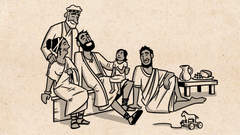
1 Thessalonians
In 1 Thessalonians, Paul celebrates the Church’s holiness, love, and future hope as they remain faithful to Jesus. Despite persecution, the church has flourished in their faith.
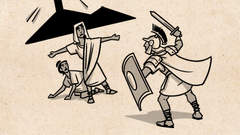
2 Thessalonians
In his second letter to the Thessalonians, Paul encourages the church to remain faithful, hopeful, confident, and fearless while waiting for Jesus’ return and deliverance from the evil ruler. Throughout the book, we see that what we hope for shapes what we live for.

1 Timothy
In this letter, Paul instructs Timothy on how to address corrupt leaders who are sharing false teachings in the church of Ephesus. Paul makes clear that what a church believes directly shapes how its members live. The church should be known for its devotion to the risen King Jesus as it models integrity and serving the poor and most vulnerable.
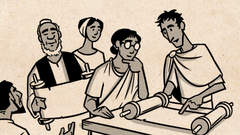
2 Timothy
2 Timothy is Paul’s last letter. It was written to encourage Timothy, challenging him to fully accept his calling despite the suffering and hardship that come with this life. The letter also reminds Timothy to maintain faith and hope in Jesus’ resurrection and raise faithful leaders who will teach the good news about Jesus.
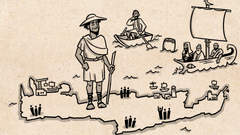
Titus
In the book of Titus, Paul reminds Cretan believers that, despite their sinful culture, they can be transformed into a new humanity by the same grace that Jesus demonstrated when he died to redeem them.

Hebrews
The book of Hebrews challenges believers to remain faithful to Jesus despite hardships and persecution by following the great models of faith from the Old Testament. Hebrews makes clear that Jesus is greater than any Old Testament event or person. He is the ultimate revelation of God's love and mercy, and he is worthy of our devotion.
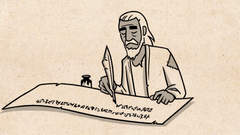
James
The book of James is filled with short wisdom speeches that are full of metaphors and easily memorized one-liners. While James doesn’t teach new theology, this book does challenge believers on how they should live. When believers listen to and obey God’s word, they show their love for him and others.

1 Peter
This letter was written as an encouragement to Gentile Christians facing persecution. Peter assures these faithful believers that they are chosen by God and that their persecution is actually a gift, offering them a chance to show others the surprising generosity and love of Jesus.

2 Peter
In this letter, Peter issues two warnings against corrupt teachers, who are objecting to the reality of Jesus’ resurrection and leading the community astray. In the coming Day of the Lord, God will expose evil and injustice to make way for a new Heaven and Earth.
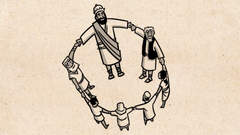
1-3 John
The books of 1, 2, and 3 John address a changing tide in the early Church—deceivers and teachers who no longer acknowledge Jesus as the Messiah or the Son of God. John says that all legitimate teachers will share the truth about Jesus and the cross, love others sacrificially, and spread love and light rather than fear.
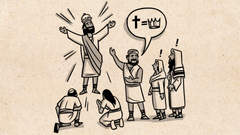
Jude
The book of Jude references the Hebrew Bible and Jewish literature to illustrate God’s judgment on rebellion. Jude challenges the church to contend for the faith and stay faithful to God. The lives of Jesus’ followers must reflect their faith because God’s grace demands a whole-life response that includes moral living.

Revelation 1-11
The book of Revelation is not a secret code for deciphering the timeline of Jesus’ return. It’s a work of apocalyptic literature that shows how every human kingdom eventually becomes Babylon and must be resisted. Revelation prophecies that Jesus, who died for the sins of the world, will return one day as King to prompt repentance.
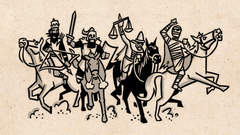
Revelation 12-22
The book of Revelation is not a secret code for deciphering the timeline of Jesus’ return. It’s a work of apocalyptic literature that shows how every human kingdom eventually becomes Babylon and must be resisted. Revelation prophecies that Jesus, who died for the sins of the world, will return one day as King to prompt repentance.
